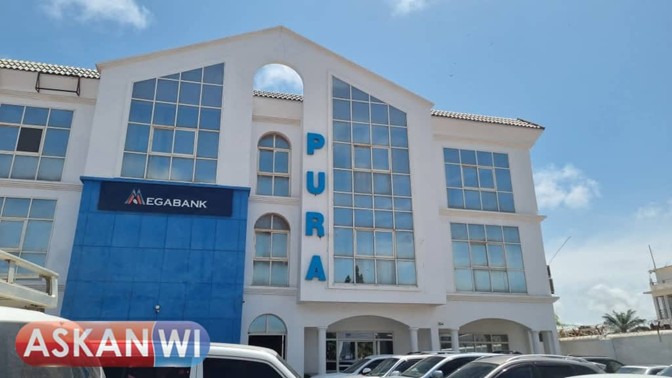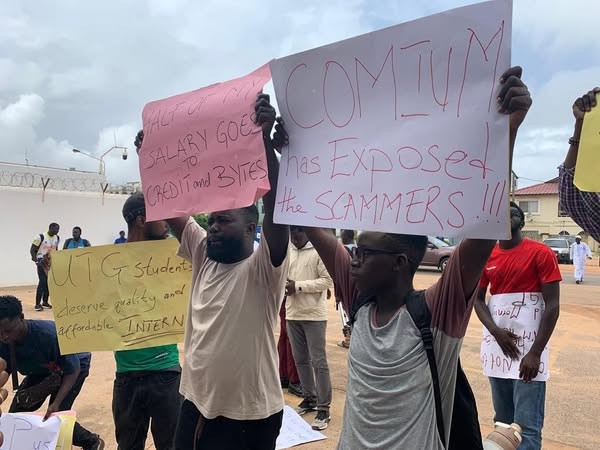For years, consumers in The Gambia have endured some of the highest mobile data prices in the sub-region, with little to no regulatory intervention. But just as they began to enjoy significantly reduced rates, the Public Utilities Regulatory Authority (PURA) stepped in, introducing a price floor of D50 per 1GB, a move that affected the GSM operators’ promotional and penetration data prices, sparking national outrage.
How the Data Price War Began
The controversy took root in mid-2025, around early July, when GSM providers such as Africell and QCell launched promotional campaigns that slashed data prices to unprecedented lows, offering 1GB for as little as D13, and in some cases, 500MB for just D5.
While Comium had previously shaken up the market in 2023 by re-entering with lower penetration rates after a period of financial instability, the 2025 promotions by Africell and QCell reignited intense competition. Their aggressive pricing strategies were aimed at retaining market share, effectively triggering a so-called “data price war” that rapidly gained public favour.
 PURA’s Intervention
PURA’s Intervention
Barely a month into the price war, PURA intervened. On 19th August 2025, the regulator released a statement declaring the imposition of a D50 price floor per 1GB and the reinforcement of quality-of-service (QoS) standards.
PURA justified the decision by stating that “while consumers initially welcomed steep price cuts, the unsustainable reductions triggered a market failure: networks became congested, internet speeds slowed, calls dropped, and coverage weakened, especially outside urban centres.”
They further defended the price floor by asserting that “cheap data that doesn’t work is no victory for consumers.” The institution also pointed to regional pricing norms, noting that the average benchmark across Africa “is USD 1 per GB, which is equivalent to GDM 71 per GB.” However, their directive not only halted all ongoing promotional offers but also raised data prices by at least 243% overnight.
Despite assurances that they will release the cost model underpinning the price floor, an assessment to introduce lifeline packages for vulnerable groups and clear quality of service benchmarks tied to pricing, nearly two months later, none of these have been made public.
 A Group of Journalists Demand Answers
A Group of Journalists Demand Answers
On 20th August 2025, the day after the announcement, a group of journalists visited PURA’s offices at Kairaba Avenue to seek clarification. Mr Burama Jammeh, Director of Economic Regulation, explained the rationale behind their decision.
According to him, this reduction by GSM Companies is not sustainable. Therefore, they have to intervene because they have sensed a “market failure, [and] if the market forces collapse and the market cannot address itself, the regulator has the power to intervene and either set a [price] ceiling or a floor.”
“The only crime we did is that we cut short of the promotion, that is the only thing we say we did. But other than that, I think we are on track, the arrangement has favoured Gambians, and it is in their best interest,” Jammeh said.
Public Backlash and Institutional Push-back
The price floor quickly became the target of intense public criticism. Many accused PURA of protecting GSM companies at the expense of long-suffering consumers.
On 20th August 2025, the same day journalists visited PURA’s headquarters, the Gambia Competition and Consumer Protection Commission (GCCPC) issued a statement stating that “such regulatory interventions risk undermining the gains of open market rivalry, where businesses compete on price, quality, and service innovation to the benefit of consumers.” In light of this, the Commission “strongly condemns the price regulation and calls on the regulatory authority to rescind this policy in favour of approaches that promote both affordable pricing and quality improvement.”
 Protests and Arrests
Protests and Arrests
Additionally, civil society groups, including the Edward Francis Small Centre for Rights and Justice (EFSCRJ), Gambians Against Looted Assets (GALA) and Team Gom Sa Bopa organised a peaceful assembly outside PURA’s headquarters at Kaiaraba Avenue, right next to the American Embassy on 22nd August 2025. Their goal was to submit a petition, which they titled “Gambians Petition PURA to Suspend Anti-Competitive Price Floor.”
However, before the petition could be delivered, police intervened. A total of 19 peaceful protestors were arrested on the day, and four more were arrested the following day and are currently facing legal action at the Kanifing Magistrate Court under Section 63 of the New Criminal Code for “unlawful Assembly” and violating the Public Order Act Section 5(5).
Government Responds with Committee
In response to mounting pressure, the government announced the formation of “a High-Level Committee to review [the price floor] in the telecommunications sector.” The statement, released on 26th August 2025, confirmed the involvement of the following:
- Ministry of Communications and Digital Economy
- Ministry of Finance and Economic Affairs
- Ministry of Justice
- Ministry of Trade, Industry, Regional Integration and Employment
- PURA and GCCPC
It is not publicly known what the timeline is for the Committee’s work nor has their terms of reference made public. Now, after nearly two months, there has been no official communication from the committee about it’s sittings and when it will address the controversy.
Although PURA claims its intervention was aimed at maintaining service quality and preventing network collapse, critics argue that the move disproportionately benefits telecom companies and hurts consumers.
With protests, arrests, prosecution and no visible progress from the promised committee, many Gambians continue to view the price floor as a step backwards and from a human rights perspective:
- A violation of the right of access to the internet
- A violation of the right to access to information
- Unaffordable internet cost
- Unreliable internet connection
- Updated to change six to two months in 9th paragraph


